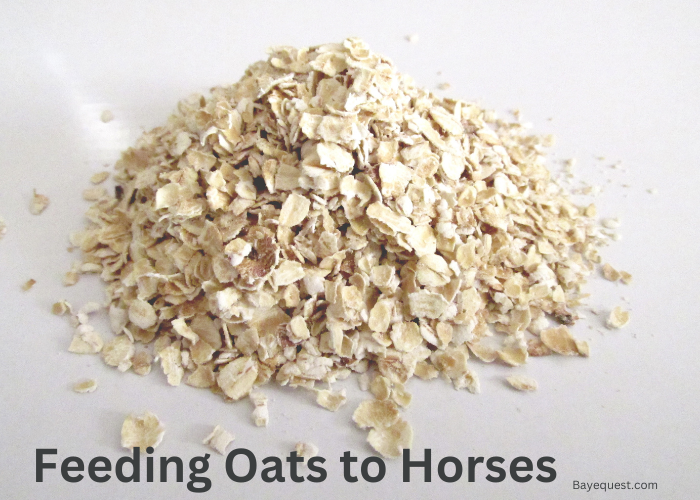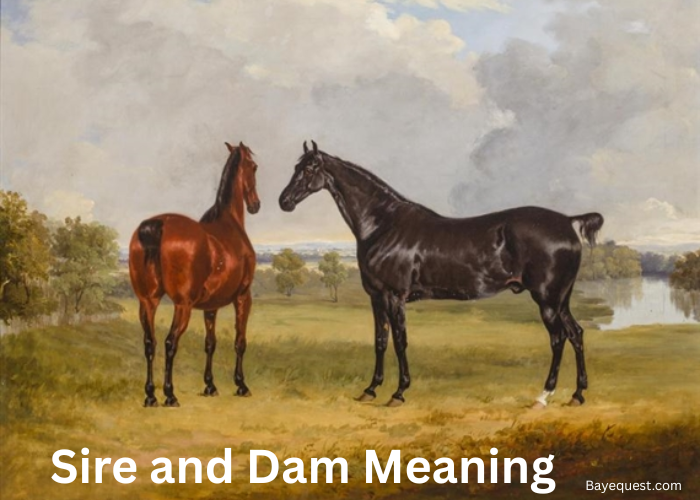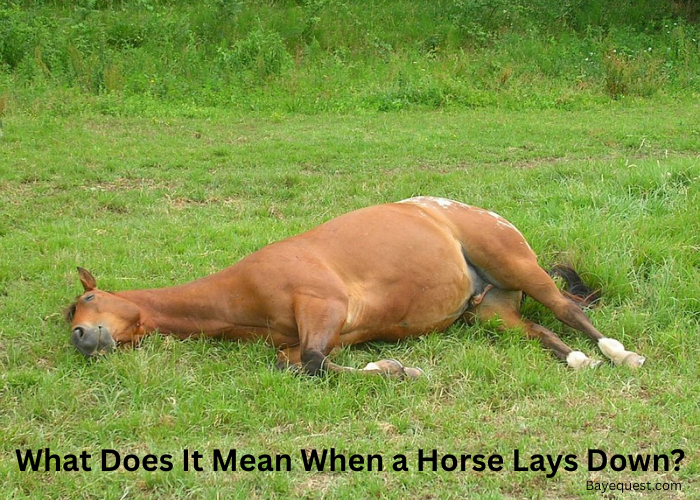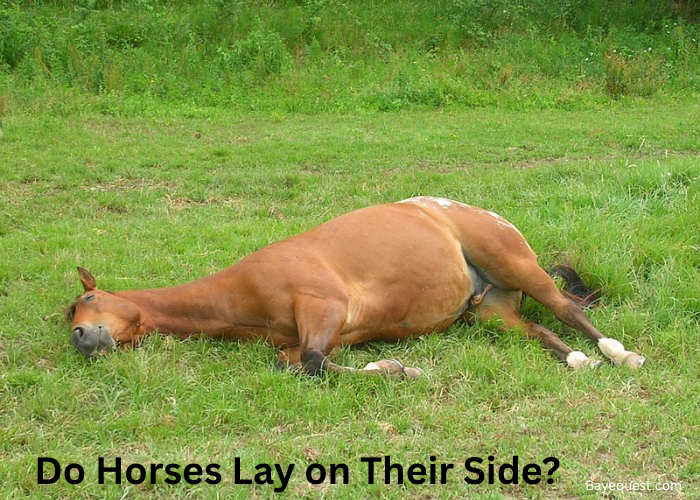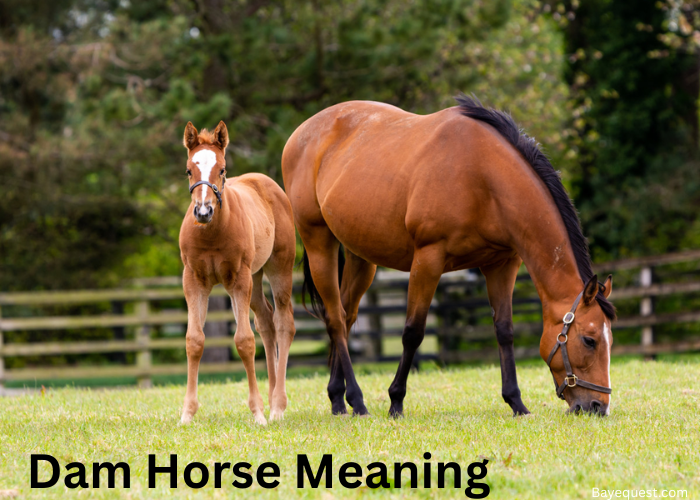Oats have been a staple in horse diets for centuries. They’re simple, nutritious, and horses love them.
But are oats still the best choice for modern feeding? With so many options today, it’s easy to wonder where oats fit in.
Some say they’re the perfect fuel, while others argue they’re outdated. The truth lies somewhere in between.
Feeding oats to horses can be great for energy, but it’s not for every horse. Let’s break down the benefits, the risks, and when oats might be the right choice for your horse.
What are Oats for Horses?
Oats are a popular feed for horses. They’re grains packed with energy, fiber, and nutrients.
Easy to digest and often a favorite among horses, oats come in different forms like whole, crimped, and rolled.
They’ve been used for ages, loved for their ability to give horses a quick energy boost. But, they’re not just about energy.
Oats also provide essential vitamins and minerals that help keep horses healthy and strong.
Simple, nutritious, and versatile, oats have earned their spot in many horse diets.
Are Oats Good for Horses?
Yes, oats are good for horses—but it depends on the horse.
Oats are nutritious, easy to digest, and provide quick energy, making them a great choice for active or working horses.
They’re also safer than many grains because of their high fiber content.
However, oats might not be suitable for horses with low energy needs, weight issues, or metabolic.
Feeding oats requires balance and should fit your horse’s specific diet and workload.
Always consult with a vet or nutritionist to ensure oats are the right choice for your horse.
What Types of Horse Oats Can I Feed to Horses?
When it comes to feeding oats to horses, you have a few options:
1. Whole oats. Oats in their natural, unprocessed form. They have a tough outer shell and are popular among horse owners for their high fiber content.
2. Crimped oats. These oats are rolled to crack the outer shell, making them easier for horses to chew and digest while retaining most of their nutrients.
3. Rolled oats. These are steamed and flattened, making them softer and more digestible, ideal for horses with dental issues.
4. Steam-rolled oats. Similar to rolled oats, but steamed before rolling, which enhances digestibility.
5. Clipped oats. These oats have the tips of the kernels removed. This reduces the fiber content slightly and makes them more digestible.
6. Hulled oats. These oats have the hulls removed completely, resulting in a higher concentration of nutrients but lower fiber content. They’re easier to chew and digest.
The Nutritional Value of Oats for Horses
This table outlines the nutritional value of oats for horses:
| Nutrient | Amount per 1 kg of Oats | Benefits for Horses |
| Energy | 3.5 Mcal | Provides a quick source of energy |
| Crude protein | 10-12% | Supports muscle development and repair |
| Crude fiber | 10-12% | Aids in digestion and promotes gut health |
| Starch | 40-50% | Easily digestible carbohydrate for energy |
| Fat | 4-5% | Provides a concentrated energy source |
| Calcium | 0.05-0.1% | Essential for bone health and muscle function |
| Phosphorus | 0.35-0.4% | Works with calcium for strong bones and teeth |
| Lysine | 0.4-0.5% | Important amino acid for growth and muscle repair |
| Thiamine (Vitamin B1) | 1.3 mg | Supports energy metabolism and nervous system health |
| Riboflavin (Vitamin B2) | 2.2 mg | Important for energy production and overall health |
| Vitamin E | 20-30 IU | Antioxidant that supports immune function and muscle health |
Pros and Cons of Feeding Oats to Horses
Discover the benefits and drawbacks of feeding oats to horses. Knowing the pros and cons helps you make the best choice for your horse’s diet.
Advantages of Feeding Oats to Horses
Feeding oats to horses comes with the following advantages:
High energy content. Oats are rich in easily digestible carbohydrates, providing a quick energy boost.
Palatability. Horses generally find oats very tasty, which makes them an excellent choice for picky eaters.
Nutritional value. Oats offer a good balance of protein, fiber, vitamins, and minerals, contributing to overall health and muscle development.
Digestibility. Oats are easier to digest compared to some other grains, reducing the risk of digestive issues.
Availability. Oats are widely available and relatively inexpensive, making them a cost-effective feed option.
Versatility. They can be fed alone or mixed with other feeds and supplements to create a balanced diet.
Minimal processing needed. Unlike some other grains, oats do not require extensive processing, retaining more of their natural nutrients.
Beneficial for horses with specific health needs. The fiber content in oats can help with gut motility, which is beneficial for horses prone to colic.
Disadvantages of Feeding Oats to Horses
Feeding oats to horses comes with the following disadvantages:
Risk of overfeeding. Oats are high in energy, so overfeeding can lead to obesity and hyperactivity.
Imbalanced nutrient intake. Oats alone may not provide a balanced diet, lacking certain vitamins and minerals essential for overall health.
Potential for digestive issues. While oats are generally digestible, some horses may still experience colic or other digestive problems.
Insulin resistance. Horses with metabolic disorders may not tolerate the high starch content in oats well.
Variable quality. The nutritional content of oats can vary, depending on factors like growing conditions and processing methods.
Dental issues. Whole oats can be difficult for older horses or those with dental problems to chew properly, potentially leading to incomplete digestion.
Labor-intensive preparation. Some forms of oats, like whole oats, may require additional preparation, such as crimping or rolling, to enhance digestibility, adding to the feeding effort.
Potential for mold and contamination. Like any grain, improperly stored oats can develop mold or become contaminated, posing health risks to horses.
When to Feed Oats to Your Horse
Knowing when to feed oats to your horse is key.
Oats are great for active horses needing an energy boost. They work well before a workout or competition.
If your horse is underweight, oats can help them gain some pounds. Always feed oats in moderation.
Mix them with other feeds to balance the diet. Keep an eye on your horse’s condition and adjust as needed.
If your horse has health issues, like insulin resistance, consult your vet first. Feeding oats at the right time keeps your horse healthy and happy.
How Much Oats Can I Feed My Horse Each Day?
How much oats you can feed your horse each day depends on a few things. For most horses, 2 to 4 pounds a day is a good start.
Active horses might need more, while less active ones need less. Always mix oats with other feed to keep the diet balanced.
Start with a small amount and see how your horse reacts. Adjust as needed. If your horse gains too much weight or gets too energetic, cut back.
Always talk to your vet or a nutritionist for the best advice. Keep an eye on your horse and make changes if needed.
How Do I Feed Oats to My Horse?
Feeding oats to your horse is simple. Start by choosing the right type of oats, like whole, crimped, or rolled.
Introduce the oats gradually into their diet to avoid digestive issues. Mix the oats with their regular feed to ensure a balanced diet.
Feed in small portions, like 2 to 4 pounds per day, depending on your horse’s size and activity level. Make sure your horse has access to plenty of fresh water.
Always monitor your horse’s health and adjust the amount as needed. Consult your vet for personalized advice. Keep it simple and consistent for the best results.
Can You Feed Oats to Horses Prone to Laminitis?
Feeding oats to horses prone to laminitis is not recommended. Oats are high in starch and sugar, which can trigger laminitis episodes.
Instead, choose low-starch, low-sugar feeds to keep their condition stable.
Always consult your vet for the best diet plan for a horse with laminitis. They can suggest safe alternatives and help you manage your horse’s health effectively.
Are Oats Safe for Horses With Equine Metabolic Syndrome?
Oats are not ideal for horses with Equine Metabolic Syndrome (EMS). They are high in starch and sugar, which can worsen insulin resistance and other symptoms of EMS.
It’s better to opt for low-starch, low-sugar feeds to manage their condition.
Consult your vet for a tailored diet plan. They can recommend safe alternatives and help you monitor your horse’s health.
Can You Feed Oats to Horses With Equine Ulcers?
Feeding oats to horses with equine ulcers is not usually recommended. Oats are high in starch, which can increase stomach acid and worsen ulcers.
Instead, choose feeds that are low in starch and high in fiber, such as alfalfa hay or beet pulp. These feeds can help buffer stomach acid and promote healing.
Always consult your vet for a proper diet plan for horses with ulcers.
Read also: Is Alfalfa Good for My Horse?
Are Oats Heating?
Yes, oats are considered a “heating” feed for horses. This means they can increase a horse’s energy levels and sometimes make them more excitable.
Oats are high in starch, which provides quick energy. While this can be beneficial for performance horses needing an energy boost, it might not be suitable for all horses.
If your horse tends to get overly energetic or “hot” on oats, consider mixing them with other feeds or choosing lower-starch options.
Always monitor your horse’s behavior and adjust their diet as needed.
Alternative Grains to Oatmeal for Horses
If you’re looking for alternatives to oats, here are some grains and grain free horse feeds you can consider:
1. Barley. Provides energy similar to oats but is less “heating.” It’s best to feed it rolled or crushed to aid digestion.
2. Corn. High in energy and calories, corn is a good option for weight gain but should be fed in moderation due to its high starch content. (Find out: Is Corn Good for Horses?)
3. Beet pulp. A great source of digestible fiber, beet pulp is low in sugar and starch, making it ideal for horses with metabolic issues.
4. Alfalfa. High in protein and calcium, alfalfa hay or pellets can be a good supplement, especially for growing or lactating horses.
5. Soybean meal. Rich in protein, soybean meal can help with muscle development and maintenance.
6. Rice bran. High in fat and fiber, rice bran is good for adding calories and improving coat condition.
7. Timothy hay. A high-fiber, low-calorie forage that’s great for all horses, especially those prone to obesity or metabolic issues. (Check out the differences between haylage and hay.)
8. Chaff. Chopped forage that can be mixed with other feeds to add fiber and bulk to the diet.
9. Complete feeds. Formulated to provide balanced nutrition, these are especially useful for older horses or those with dental problems.
10. Low-starch feeds. Specifically designed for horses with metabolic conditions, these feeds are lower in sugars and starches.
Can Horses Eat Oats: FAQs
Can horses eat oatmeal?
Yes, horses can eat oatmeal, but it’s usually served plain and cooked. Oatmeal is safe, easily digestible, and a good source of energy. However, it’s more of a treat than a regular feed. Too much can unbalance their diet, so feed it in moderation.
Rolled oats vs whole oats for horses
Rolled oats are easier to chew and digest because they’re flattened, making them ideal for older horses or those with dental issues. Whole oats, however, retain their natural structure and nutrients. Both are nutritious, but rolled oats provide slightly better digestibility.
Crimped oats vs whole oat feed for horses
Crimped oats are whole oats that are slightly crushed, improving digestibility and nutrient absorption. They’re beneficial for younger or older horses with chewing difficulties. Whole oats are less processed, keeping nutrients intact, but may pass through undigested if chewing is poor.
Is Oats Good for Horses? Conclusion
Feeding oats to horses has its ups and downs. They’re tasty and packed with energy but can also cause issues if not managed right.
It’s all about balance. Know your horse’s needs and watch their reactions. Mix oats with other feeds for the best results.
And remember, always consult your vet for advice. Oats can be a great addition to your horse’s diet if used wisely. Happy feeding, and here’s to healthy, happy horses.




